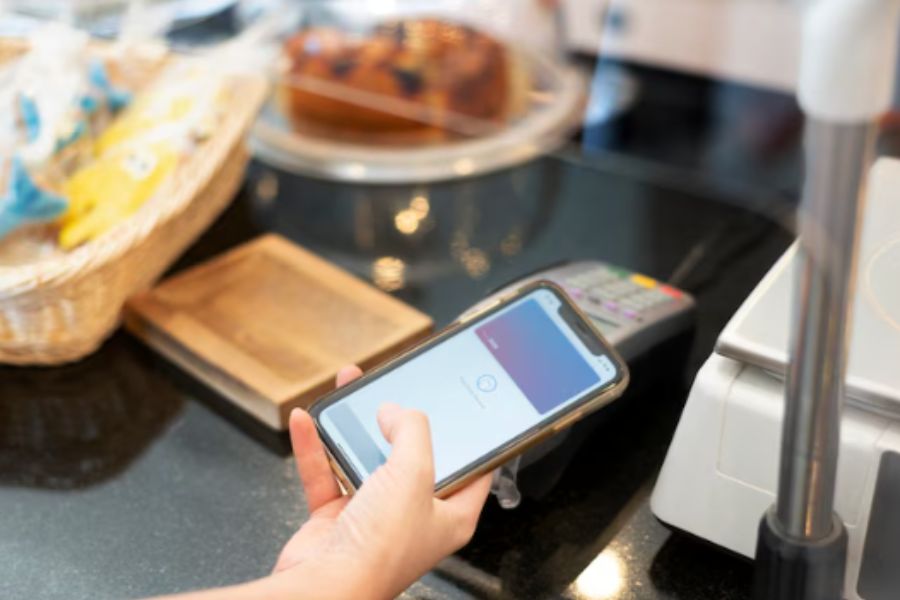In the ever-evolving landscape of e-commerce, businesses are continually seeking ways to enhance their operational efficiency and provide a seamless shopping experience for customers. One key strategy that has gained prominence is the integration of a point-of-sale (POS) system with WooCommerce.
This article explores the intricacies of this integration, delving into the features and benefits and providing a step-by-step guide on how to seamlessly integrate a POS system WooCommerce.
Overview of WooCommerce
WooCommerce has emerged as a leading e-commerce platform, empowering businesses to establish and expand their online presence effortlessly. It is a powerful and flexible plugin for WordPress, enabling users to transform their websites into fully functional online stores. However, for businesses with a physical presence, the integration of a point-of-sale (POS) system with WooCommerce becomes crucial.
WooCommerce is an open-source e-commerce plugin for WordPress that enables businesses to sell products and services online. It provides a user-friendly interface and a range of features to customize and manage online stores effectively. Integrating a POS system Woocommerce enhances overall efficiency by seamlessly connecting the online and offline sales channels.
Since its introduction in 2011, WooCommerce has grown to be the predominant e-commerce solution. As of 2020, it fueled 4 out of every 10 online ordering websites, firmly establishing itself as a prominent force in the online marketplace.
Feature of WooCommerce Integrated with POS
WooCommerce, one of the most popular e-commerce platforms for WordPress, becomes even more powerful when integrated with a Point of Sale (POS) system. This integration offers a seamless and efficient way for businesses to manage their online and offline operations.
Let’s explore the key features of WooCommerce integrated with POS and understand how it enhances overall business management.
Inventory Management
Effective inventory management is crucial for any retail business. The integration of WooCommerce with POS allows for real-time synchronization of inventory data between the online store and the physical store. This ensures that product information, stock levels, and prices are consistent across all sales channels.
Merchants can easily track stock movements, update product details, and prevent overselling, leading to improved accuracy and customer satisfaction.
Order Management
Unified order management is a significant advantage of integrating WooCommerce with POS. Businesses can process orders seamlessly, whether they originate from the online store or in-store transactions. This streamlined order processing helps in reducing errors, minimizing delays, and enhancing the overall customer experience.
It also provides a centralized view of all orders, making it easier for merchants to manage and fulfill customer requests promptly.
Payment Integration
WooCommerce integrated with POS allows businesses to accept a variety of payment methods, providing flexibility to customers and enhancing the overall shopping experience. Whether it’s credit cards, cash, barcode scanning, or digital wallets, the POS system ensures secure and efficient payment processing.
This integration simplifies the checkout process and helps businesses cater to a broader range of customers with diverse payment preferences.
Customer Data Sync
A seamless customer experience is achieved through the synchronization of customer data between the online store and POS system. With this integration, customer profiles, purchase history, and loyalty information are accessible across all touchpoints.
This not only facilitates personalized interactions but also enables businesses to build stronger relationships with their customers by offering targeted promotions and rewards based on their buying behavior.
Multi-location Support
For businesses with multiple physical locations, the integration of WooCommerce with POS becomes even more valuable. It allows centralized control over inventory, orders, and customer data across all locations.
This ensures consistency in operations, reduces the risk of errors, and provides a holistic view of the business’s performance, making it easier for merchants to make informed decisions.
Reporting and Analytics
Comprehensive reporting and analytics are essential for business growth. The integration of the POS system Woocommerce offers robust reporting tools that provide insights into sales performance, inventory turnover, and customer behavior.
Merchants can generate detailed reports to analyze trends, identify opportunities for improvement, and make data-driven decisions to optimize their business operations.
Tax Calculation and Compliance
Tax compliance can be complex, especially for businesses operating in multiple regions. WooCommerce integrated with POS automates tax calculations based on location and ensures that businesses remain compliant with local tax regulations.
This feature simplifies the tax management process, reduces the risk of errors, and helps businesses stay on the right side of tax authorities.
Discounts and Promotions
Running promotions and offering discounts is a powerful strategy to attract and retain customers. The integration of WooCommerce with POS enables businesses to create and manage discounts seamlessly. Whether it’s percentage-based discounts, buy-one-get-one-free offers, or time-limited promotions, merchants can execute marketing strategies effectively to boost sales, gift cards, and customer loyalty.
Returns and Refunds
Handling returns and refunds is an integral part of retail operations. The integration of the POS system Woocommerce streamlines the returns and refunds process, ensuring that it’s consistent across online and offline channels. This not only improves customer satisfaction but also simplifies the task for store staff, reducing the administrative burden associated with returns and refunds.
How to Integrate WooCommerce with POS
Now that you know the definitions and features of a WooCommerce POS integration, let’s delve into the setup phase. We’ll break down the tutorial into small, straightforward steps, allowing you to follow along and conveniently assess the outcomes at each step.
Step 1: Install the Plugin
The first crucial step in integrating WooCommerce with POS is to install the ConnectPOS plugin. Begin by navigating to the WordPress dashboard, select “Plugins,” and then choose “Add New.”
Search for the ConnectPOS plugin, Install it, and Activate it. This sets the foundation for the synchronization of your online and in-store transactions.
Step 2: Configure the settings
Once the ConnectPOS plugin is activated, it’s time to configure the settings to ensure seamless integration. Head to the ConnectPOS dashboard and input the necessary information, including your WooCommerce store URL, API credentials, and other relevant details.
This step establishes the communication between your online store and the POS system, laying the groundwork for a unified sales environment.
Step 3: Establish Tax Regulations
Tax compliance is a critical aspect of retail operations, and integrating WooCommerce with POS requires careful consideration of tax regulations. In the ConnectPOS settings, configure the tax options to align with your business’s location and requirements.
This ensures that taxes are accurately calculated and applied to transactions, preventing discrepancies between online and offline sales records.
Step 4: Connect with ConnectPOS Payment Account (Optional)
For a more streamlined financial workflow, you have the option to connect your ConnectPOS account with your preferred payment gateway. This step facilitates real-time payment processing and enhances transaction security. Navigate to the ConnectPOS settings and integrate your payment account, choosing from a range of supported payment gateways.
This optional but valuable step contributes to a more efficient and secure payment process.
Step 5: Print the Invoice
One of the practical advantages of integrating WooCommerce with POS is the ability to generate and print invoices directly from the POS system. This step involves configuring the printer settings within ConnectPOS. Choose the appropriate printer and set the layout preferences for your invoices.
Printing invoices directly from the POS system expedites the checkout process and provides customers with a tangible record of their purchase.
Step 6: Customize your Invoice
Tailoring your invoices to reflect your brand identity is an essential aspect of customer engagement. The ConnectPOS plugin offers customization options for invoices, allowing you to incorporate your logo, adjust colors, and include relevant information. This not only enhances the professional appearance of your invoices but also reinforces brand recognition.
Take advantage of these customization features to create a cohesive and visually appealing representation of your business on every invoice.
Conclusion
The integration of a POS system with WooCommerce opens up a world of possibilities for businesses seeking to streamline their operations and provide a seamless shopping experience. By effectively managing inventory, orders, payments, and customer data, businesses can enhance efficiency, reduce errors, and improve overall customer satisfaction.
You can follow the step-by-step guide outlined above to help businesses seamlessly integrate POS system Woocommerce. If you want to know more about this information, feel free to contact us.



